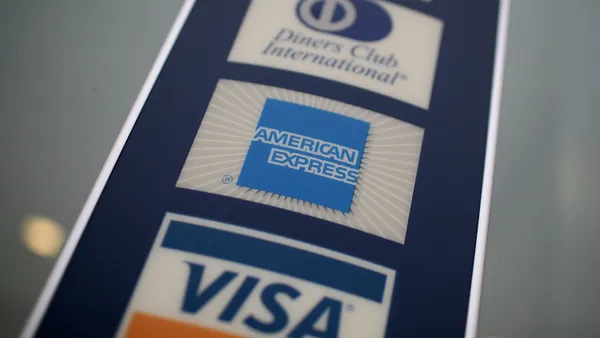Dive Brief:
- Major U.S. airlines, including American Airlines and United Airlines, as well as planemaker heavyweights Boeing and Airbus joined with some unions to urge Senate leaders to oppose a proposed credit card competition amendment to the GENIUS Act bill, per a letter shared with Payments Dive by the Electronic Payments Coalition.
- In the Monday letter to U.S. senators, airlines, aviation companies and unions argued that the amendment would “impose onerous, unnecessary regulations on business-to-business credit card transactions,” negatively impacting consumers and the companies’ workers.
- “This amendment would harm airline consumers and workers across the country, and ultimately travel and tourism throughout the U.S.,” the letter said. “We request that you oppose any effort to attach this language to any vehicle on the Senate floor.”
Dive Insight:
The GENIUS Act bill would impose regulations on the expanding cryptocurrency ecosystem, and specifically stablecoins, which are kind of crypto tied to a stable asset, such as fiat currency. The bill has been inching forward in the Senate. Now, senators are seeking to attach a slew of amendments to the bill as it gains momentum, even though it’s still pending in the House.
Sens. Roger Marshall and Dick Durbin last month offered an amendment to the GENIUS Act that would attach their Credit Card Competition Act proposal, introduced in prior congressional sessions, to the bill. Their amendment aims to change the Electronic Fund Transfer Act to inject more competition into the card network industry dominated by Visa and Mastercard.
The proposed amendment from the bipartisan duo would prohibit financial institutions that issue cards from restricting the number of networks available to businesses for processing credit card transactions.
In addition to the major airlines, the letter was also signed by smaller rivals and aerospace companies. The unions that signed the missive included the Communication Workers of America; International Association of Machinists and Aerospace Workers; the Association of Flight Attendants-CWA; and the Allied Pilots Association.
“The lost revenue derived from airline co-branded credit cards would imperil the ability of U.S. airlines to meet existing commitments to their frontline workforce, and it would certainly complicate existing or future collective bargaining negotiations,” the letter said. “A smaller airline industry will have a ripple effect throughout the industry, including with aircraft manufacturers, their suppliers, airports, and the larger travel, tourism, and hospitality sectors.”
The Electronic Payments Coalition represents networks Visa and Mastercard as well as the biggest card issuer, Capital One, and neobank Chime. It has long campaigned, alongside bank trade groups, against the legislation offered by Marshall and Durbin.
Durbin has been supported by retailers, restaurants and their trade groups in his decades-long campaign to spur more competition in the card industry. A spokesperson for Durbin said he would continue to back the bill until his term ends in 2027, after which he won’t seek re-election.












